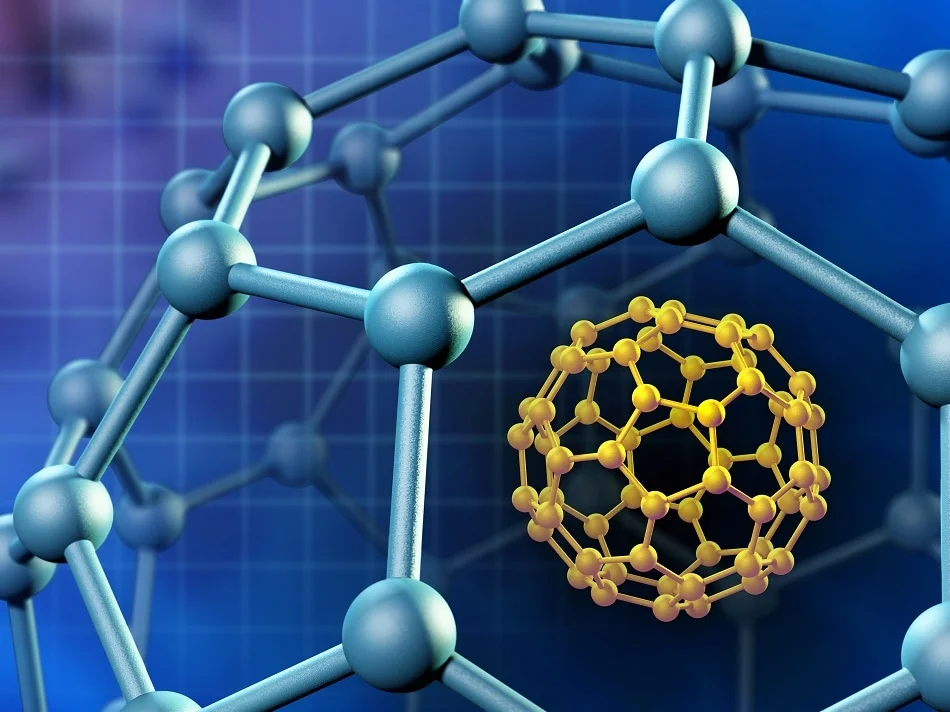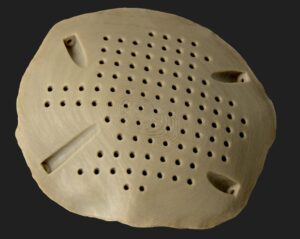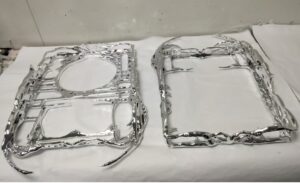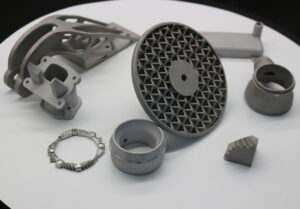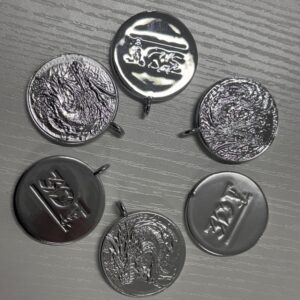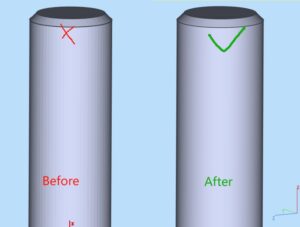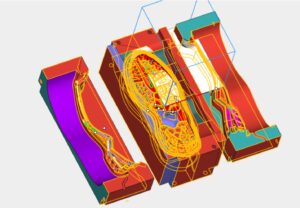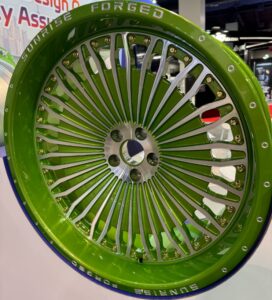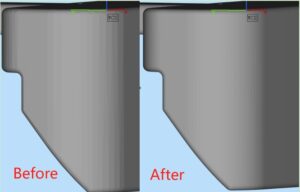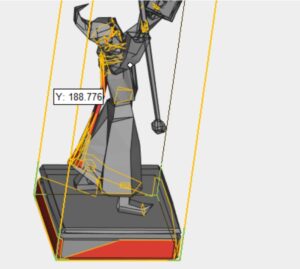Mechanical Properties Every Design Engineer Should Know
Mechanical properties are those that determine the behavior of a material under the forces applied to it and reflect the relationship between its response to a load and the deformation it undergoes. In other words, the mechanical properties of materials help us to measure how materials behave under load in order to achieve optimum system performance.
Material Stress and Strain
First, we need to explain some of the physical concepts behind the mechanical properties. The main one is stress. Stress tells you how big of a force applies to an area. In mechanical engineering, it is mostly expressed in MPa’s or N/mm2. Those two are interchangeable.
The formula for stress is:
σ=F/A, where F is force (N) and A is area (mm2).
The second important concept is strain. Strain has no unit as it is a ratio of lengths. It is calculated as follows:
ε=(l-l0)/l0, where l0 is starting or initial length (mm) and l is stretched length (mm).
Young’s Modulus
From those two concepts we get to our first mechanical properties – stiffness and elasticity as its opposite. It is an important factor for engineers when solving physics problems (material suitability for a certain application).
Stiffness is expressed as Young’s modulus, also known as modulus of elasticity. As one of the primary mechanical properties of materials, it defines the relationship between stress and strain – the bigger its value, the stiffer the material.
This means that the same load would deform two equally-sized parts differently, if they have varying Young’s moduli. At the same time, lesser value means that the material is more elastic.
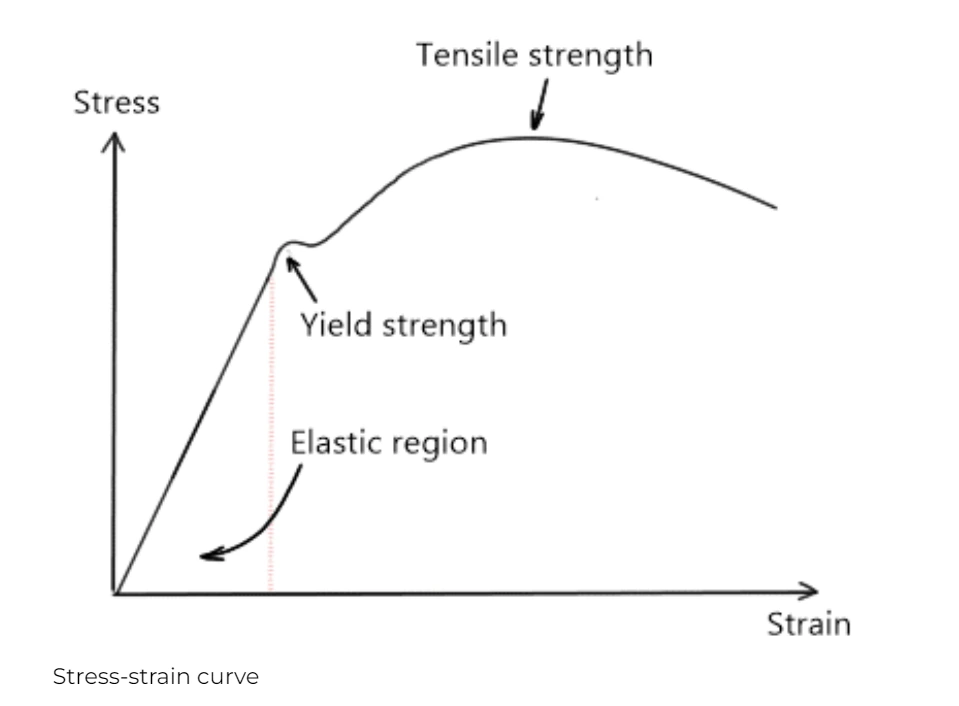
Yield Strength
Yield stress or yield strength is the value most often used in engineering calculations. It gives a material a stress value in MPa it can take before plastic deformation. This place is called the yield point. Before it, a material regains its former shape when lifting the load. After exceeding the yield point, the deformation is permanent.
There is a good reason for using yield stress as the most important factor in mechanical engineering. As can be seen from the stress-strain curve, when stress goes beyond the yield point, the damage is not yet catastrophic. That leaves a “cushion” before a construction fails completely to the point of breaking.
Tensile Strength
Ultimate tensile strength, or just tensile strength, is the next step from yield strength. Also measured in MPa’s, this value indicates the maximum stress a material can withstand before fracturing.
When choosing a suitable material to tolerate known forces, two materials with a similar yield strength may have different tensile strengths. Having higher tensile strength may help to avoid accidents, if unforeseen forces are applied.
Hardness
Hardness refers to the ability of a material to withstand scratching or indenting on its surface. It is one of the most commonly used material properties and can be applied to any solid material. Obviously, harder materials are more difficult to scratch or dent.
There are several standard hardness scales and testing methods that can be used. The most common scales are the Rockwell, Vickers and Brinell hardness scales.
A piece of material might be called out as 45 Rc (Rockwell C scale). The hardness is measured using a calibrated machine that measures the force required to put a small indentation in a material sample.
While certain materials will naturally be harder than others (steel will always be harder than aluminium, for example), the hardness of many materials can be increased or decreased by heat-treating or work hardening.
Hardness is extremely useful for a design engineer. For example, an engineer will generally specify a minimum hardness for something like a hammer to ensure that it does not easily scratch or dent when used under normal conditions. However, it may be a good idea to anneal a stainless steel part that will be machined in a later process to make sure it isn’t too hard for the cutting tools that will be used.

